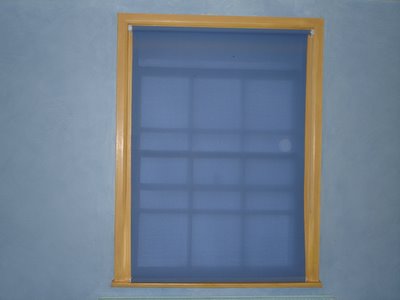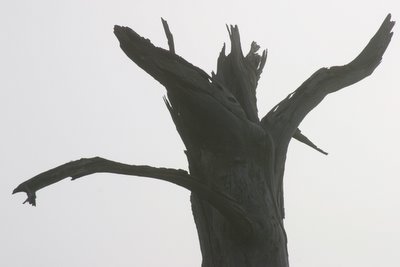Up later this morning! Those schoolday schoolrun habits are hard to shake off but last night was LATE. Played Bridge then ended up helping out a stranded motorist until the AA came. Crawled in at 0100 then couldn't sleep so started sorting manuscripts. I figure the less sleep the more living and I have less days to live than I've lived, so..
Yesterday was spent trying to organise my library of unsold fiction, trying to FIND some stories (and that's embarrassing!) and the sheer volume of unplaced stories is ludicrous. I think I'll keep the total secret until I've placed half of them. I have a long, tedious job today, scouring the ten thousand piles of detritus (also called my office) to drag out all those SS manuscripts for which I've lost computer files.
There's a lesson here, folks. First, why weren't the stories out there looking for a home? Second where were my computer back-ups? Third why don't I have a neat and accessible paper-filing system?

Boot Camp is REALLY quiet over the holiday, more so than any other year. Big mistake not to have a blast in the second half of December. I always do and the returns in January and February are a big help in getting through the rest of the Winter and Early Spring.
Want some free advice, right now? Write a flash this morning, right a story this afternoon, and then get six submissions out. While 99% of the world is cruising, YOU are getting active and making things happen.
Every year in Boot Camp we've ended the year with Christmas Day and started the New Year with December 26th. This year, because I was restructuring we actually finished 2005 on December 23rd at 11:00 (The Keegan Calendar) and started 2006 immediately. Sounds silly? See my road-race analogy later.
In 2005 Boot Camper had 26 First Prizes, over 100 Prizes/Final Places and over 450 Hits. As soon as we hit 100 subs for December (quietest month of the year, obviously) and that elusive 26th First Place, I figured, let's wrap the year up and kick on for 2006.
"2006" has started with a rush. 26 Submissions and three more hits. Colin U managed First in SlingInk's Eurofiction, Lexie Fox got second in a comp (trying to remember the name) I think called "The Dame Throgmorton" and I managed a last 12 (but no coconut in a US Comp run by Night Train). Yes we call "named finalists" a hit. You could come 14th of 4,000 in Bridort and "win" nothing, but that's a hell of an achievement. So of course it's a hit.
Road RaceI used to be a club runner and then running coach. In a 10K race, many go off a bit too fast, settle down at about 3K, hang on until 9K or even later, and then kick hard either for the last few hundred metres, 500 metres, or MAYBE all that last Kilometre.
I used to teach people to race from EIGHT K to 9K. The theory is simple. "Everybody" cruises 7-8-9, the hardest part of the race. They are hanging-in, hanging-on, intending to try and raise their game in the last kilometre. So, if you push hard, not from 9 to 10 but from 8 to 9 you overtake hundreds of people. You get to 9K higher up the field than you have ever been, you are on for a PB (Personal Best), and now, even though you are tireder than you've ever been, suddenly you have massive incentive. All you need is one last painful K and you will have your best-ever result. It's a case of getting your retaliation in first. Most importantly it works.
So when the world is on cruise, kick ahead. Start working NOW! Write, write, write, submit, submit, submit. Finish December with a flourish, not getting fat in front of the TV. Start January with the biggest writing-subbing blast EVER. Why? Because you'll see what you can do (always more than you think you can), the hits will come earlier and more often (and motivate you to work harder) and you'll begin to lay down good habits.
In Boot Camp we run personal logs, try to write 250 or 500 words BEFORE ACCESSING THE INTERNET and have individual personal daily and weekly goals. In 2006 I'll keep the Boot Campers on their toes by posting a league table, not of SALES but of WORK. The best predictor of long-term success is WORKRATE.

Set Bronze, Silver and Gold targets, break them down to make them achievable. If you want 52 Hits in the year and you only place 1 in 6, then sunshine, you gotta submit 312 pieces. So aim for one a day, 365, so if you fall short you still beat that 312 and ACHIEVE your targets.
BC has about 25 members ranging from total beginners to damn good intermediates, then me. Last year we hit 450 hits, 26 First Places, so this year I need to aim at 500 Hits and 32 Firsts. 32 seems an odd number. I chose that because if we manage 32, Boot Camp will have had 120 First Prizes since it started.
For a list of 88 Firsts visit
HERE select all about Boot Camp, then BC Firsts.
Incidentally, can any web/HTML gurus tell me why that page doesn't come up with a distinctive URL and only comes up with the URL for the site?
Frankly, the numbers above look daunting, even to me. 32 Wins? Seems bloody difficult. It means we have to be in virtually every competition, challenging hard. It means individually Boot Campers have to be really working hard, producing good enough work, and sending stuff out, paying those entry fees, then doing it again, and again, and again.
But when we wer getting 4-5-6 wins in a year, was 15 possible? When we got 17 in a year, did we ever think we could break 20? There must be a limit, mustn't there? Mustn't there?
Oh, BTW, the other prizes, seconds/thirds etc are years out of date!
Alex
Here's Boot Camp's Flash prompts for this morning.
Boot Camp Flashes at 08:15 (UK Time)Waterland, Waterworld
Shirt Stories
Like a Big Girl's Blouse
Marmalade, Mama, Marmalade
A Bastard in Southern France. Maybe
Me and the Fat Man
Julius, Julius, Approximus
Caesar Had Some Apples, How Many Did He Eat?
China Blue, Formosan White
The View From Under the Table
Cherries, Cherry-Picking
A story beginning: "This time, this time, I'll
So who could write a short with all those in? Hah!










